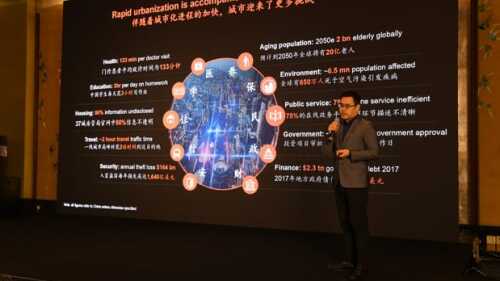Could California’s redevelopment agencies be going the way of analog television and landline telephones?
A radical proposal put forth by California Governor Jerry Brown is calling for abolishing all 260 redevelopment agencies (RDAs) statewide as a means to help close the state’s huge budget gap. Predictably, RDAs are mounting a defense, but few other voices are being heard. A recent panel discussion of ULI San Francisco articulated to a packed room what California stands to lose, not just its real estate community.
Large, long-term projects such as the Transbay Transit Center, Mission Bay, and the Hunters Point Shipyard transformation would simply not get off the ground, said Fred Blackwell of the San Francisco RDA.
“These funding issues for smart urban development and redevelopment are one of many problems facing the state, and policy makers are hard-pressed for solutions. What are the choices? It’s a series of trade-offs and every constituency should be weighed in those choices,” said moderator Zane Gresham, an attorney with Morrison & Foerster.
“Clearly, the challenge that this presents for affordable housing, for economic development, for infrastructure development really can’t be overstated,” he said.
Panelists noted that RDAs in other California jurisdictions have drawn attention for abuse of the RDA mission of transforming challenged or blighted urban areas. “I’m not sure that RDAs should be building Wal-Marts and Costcos in the suburbs,” one panelist observed.
According to the governor’s proposal, $1.7 billion would be available to the state once the RDAs are abolished. One problem, said Blackwell, is that the estimate is likely overstated because the data are based on 2007–2008 numbers and don’t take into account RDA contracts since then.
“The real risk here is throwing the baby out with the bathwater,” said Cynthia Parker, CEO of nonprofit housing developer BRIDGE.
What does that mean for San Francisco? Half of the city’s RDA budget goes toward affordable housing, said Blackwell. If RDAs are abolished, some 1,400 affordable housing units that have not been committed would be in jeopardy. The San Francisco RDA already has 11,000 existing units under its management.
According to Chris Meany of developer/investor Wilson Meany Sullivan, the Treasure Island project, which is being developed by WMS, Lennar, and others in conjunction with the city and the San Francisco RDA, would have a $200 million to $300 million shortfall in its pro forma without RDA funds.
“Projects like Transbay, Hunters Point, Treasure Island, and Mission Bay could not be accomplished,” he said. Pollution cleanup is one major factor, he noted.
“The projects on which we’ve been working with redevelopment agencies have all been in the urban core and have been left behind because they’re contaminated and have problems,” he said, such as polluted former military bases like Treasure Island. “It’s a benefit to the community as a whole to bring people to the transportation network. It’s really smart growth at its best. If redevelopment is eliminated, those sites will remain dormant and won’t be returned to useful purpose and we’ll unfortunately have to turn to sites without problems, which are often sprawl projects.”
Parker estimates that BRIDGE has 2,000 units of housing in some stage of approvals to construction in the state, and is working with 20 different RDAs.
Is there room for a compromise over the RDA proposal? All three panelists agreed that the system needs reform, from how RDAs are structured to their accountability. Blackwell said a more streamlined system could “put $1 billion on the ground quickly, creating housing.”
He also said that Senate Bill 375, which aims to reduce greenhouse gases and promotes transit-oriented development, has no greater implementation tool than RDAs, which help focus development into existing urban areas. Finally, according to Blackwell, financial reforms need to be addressed, and that more local jurisdictions will need to be at the table, not just the large agencies such as his own.
Meany and Parker both addressed the current problem of certain jurisdictions not using their allocation of redevelopment funds and discussed a “use it or lose it” approach to address more accountability and compliance. Parker also cited the need for more transparency in RDA processes, and the need for more investment in public education.
Why should other ULI members around the country take note?
“There is a great effort by government [groups] to recover dollars at every level,” said Meany. “Anyone who is engaged in developing in cities and is engaged in public/private partnerships needs to be at the table. . . because the pressure to grab is very great.”
With all of the talk of compromise and reform, a member of the audience with the California Redevelopment Association reminded the group of an important underlying issue. “Proposition 13 is still the third rail in California politics,” he said. Politicians have seen Proposition 13 as untouchable in terms of reform, but its redistribution of taxation and its influence in pushing some cities to use RDA retail development for the tax income is one root of the problem.
Governor Brown’s office has identified 18 RDAs large and small, urban and nonurban, to explore how they operate (San Francisco’s RDA not being among them), but next steps or alternatives are as yet undetermined. The discourse is sure to electrify many constituencies and could have far-reaching consequences for California in the years to come.



